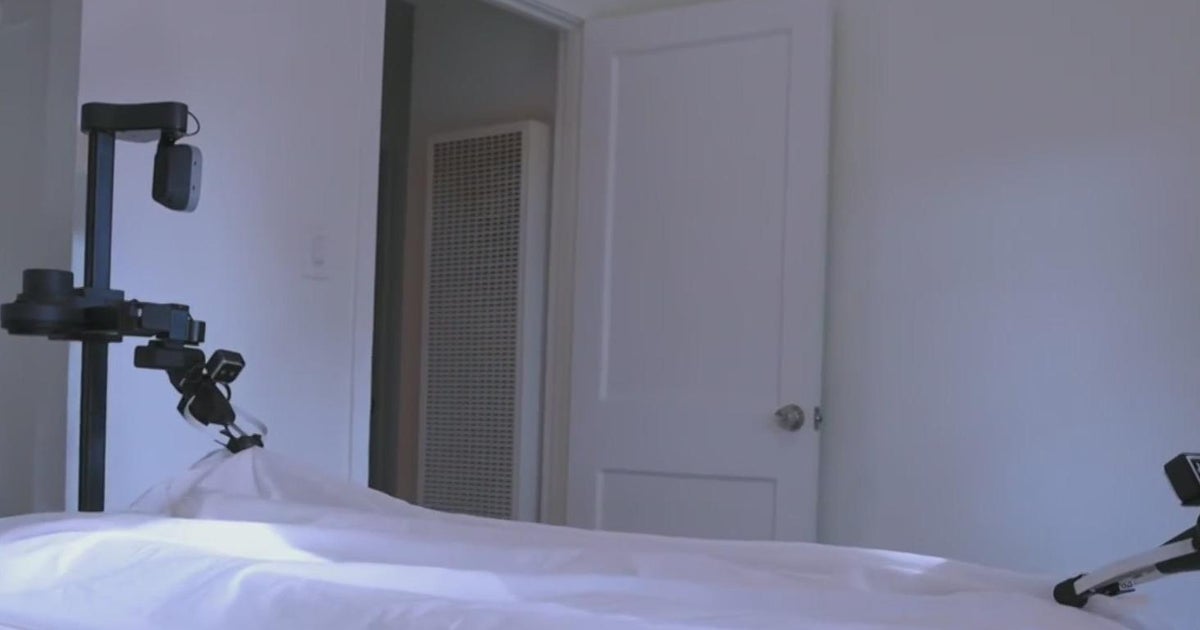Is it time for a 'sleep divorce?' Ways for couples to get a good night's sleep and remain intimate
PITTSBURGH (KDKA) - Did you get a good night's sleep?
Many don't and the reason is often the person closest to your heart. So, have you considered a sleep divorce?
You're obviously not really divorced, you just don't sleep together every night.
First and foremost, the experts aren't the biggest fans of the term "sleep divorce" because it has negative overtones for something that is really meant to improve your and your partner's health.
It all starts with you and your partner being honest - is there a problem?
"If there are no sleep problems at all, then by all means, sleeping in the same bed is better," said Allegheny Health Network Sleep Specialist Dr. Daniel Shade. "We release oxycontin and some other chemicals that are called 'the cuddling hormones' and things that give us a good feeling and bring us closer to that person we're imprinting upon that we're with."
That impact really kicks in with deep REM sleep but if you're not getting there, not even close.
"You're snoring and you're thrashing about - [it] disturbs your partner or you're getting up at 4 a.m. to go to work, or you have to use the bathroom many times in a night, and that can get disruptive," Dr. Shade explained.
There's also the difference in sleep schedule, maybe one of you is a night owl and one of you is early to bed.
"Perhaps one person wants to watch TV until midnight and the other doesn't, or you like the bed colder, little things like that can lead to sleep disruption," he said.
That's when considering separate sleep arrangements might come in - in the interest of health.
"You want them rested, you want them well-fueled, well-trained, you want them in a positive mood," said Eric Garrison a forensic sexologist and sex counselor.
"People will realize sooner rather than later that it's an advantage to that couple," Garrison said. "It's just getting over the stigma of 'does this mean I'm being kicked out of the relationship?'"
It's also more common than you'd think, according to Dr. Shade. He referenced a recent survey that found about half of the couples questioned wanted to sleep apart because their partner disrupts their sleep, but they don't. While a quarter of couples have made the choice to sleep apart.
It's still a tough conversation to have because of the fear that intimacy could be sacrificed in the decision.
The warmth and fulfillment of sleeping with your partner every night may not be a strong enough feeling to put up with the struggle of losing sleep each night.
"The why is because you wake up at a different time than I do," said Garrison, when asked how to start the conversation. "I like the room hotter than you do, you toss in your sleep, you have a CPAP machine."
"A solution might be, look on the weekdays when we're going to work and we have these different schedules. maybe I'll just sleep in the other room," added Dr. Shade.
Shade and Garrison agree intimacy doesn't have to suffer when making this decision. They cited couples that cuddle together but then sleep separately or sleep together on the weekends.
Lastly, while it doesn't have to be separate bedrooms, it could just be different beds in the same rooms, remember - your partner may be struggling too.




